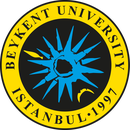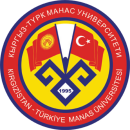
International Conference on Eurasian Economies
1-3 July 2014 – Skopje, MACEDONIA
Paper detail
Paper ID : 1088
Status : Paper published
Language : Turkish
Topic : Regional Economics
Presenter: Assoc. Prof. Dr. Nazım Çatalbaş
Session : 7B Uluslararası Ekonomi II
The Role of Logistics Services in Development of Foreign Trade in Central Asia
Orta Asya’da Dış Ticaretin Gelişmesinde Lojistik Hizmetlerinin Rolü
- Assoc. Prof. Dr. Nazım Çatalbaş (Anadolu University, Türkiye)
Abstract
The crucial technical changes in the transport has significantly contributed to the globalization of production and trade. But, in the pure foreign trade theory, transport costs have been ignored, transportation costs are assumed to be zero. With the new approaches, the importance of logistics services in foreign trade has been understood. According to Porter's model, the logistics services are among the main activities and it determines the cost advantage. This study focuses on relationships between logistics services and foreign trade in the Central Asia. Central Asian countries’ data were compared with the other countries. Central Asia does not have a direct connection to any sea. Due to lack of territorial access to the sea and therefore remoteness and isolation from world markets causing high transit and transportation costs. While logistics performances are low in the landlocked developing countries, it is high in the developed countries. The low logistics performance increases the costs of foreign trade and cause waste of time in region. For reducing logistics costs in Central Asia, it should be renewed transport infrastructure, constructed alternative networks, harmonised customs and transit regimes in Asian countries and realized other arrangements facilitating the trade. These arrangements for cooperation among countries in the region as well as regional organizations are also required.
JEL codes: F11, D23, F14
Çatalbaş, Nazım (2014). "The Role of Logistics Services in Development of Foreign Trade in Central Asia" in Proceedings of International Conference of Eurasian Economies 2014, pp.447-455, Skopje, MACEDONIA.
DOI: https://doi.org/10.36880/C05.01088
Session 7B: Uluslararası Ekonomi II




